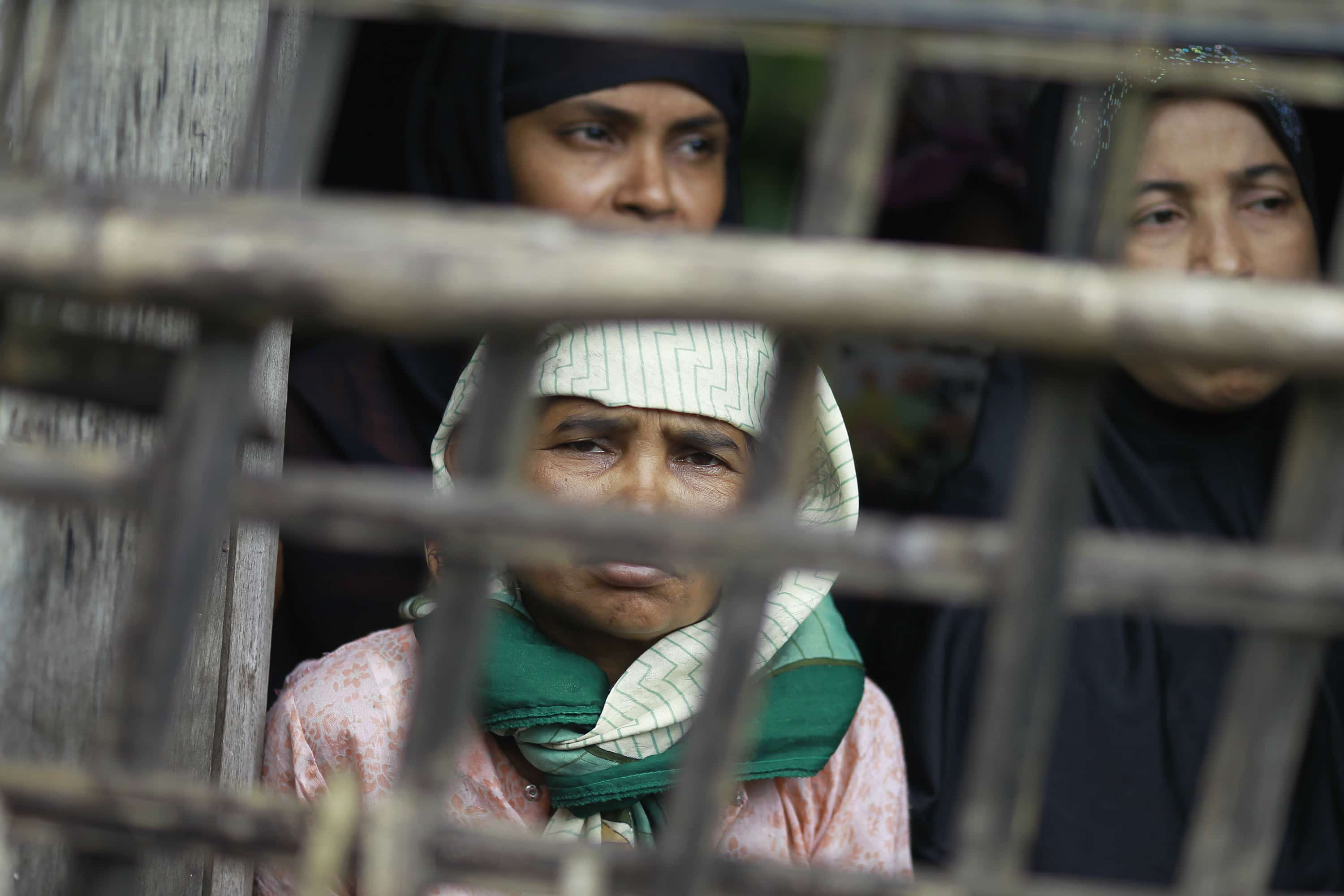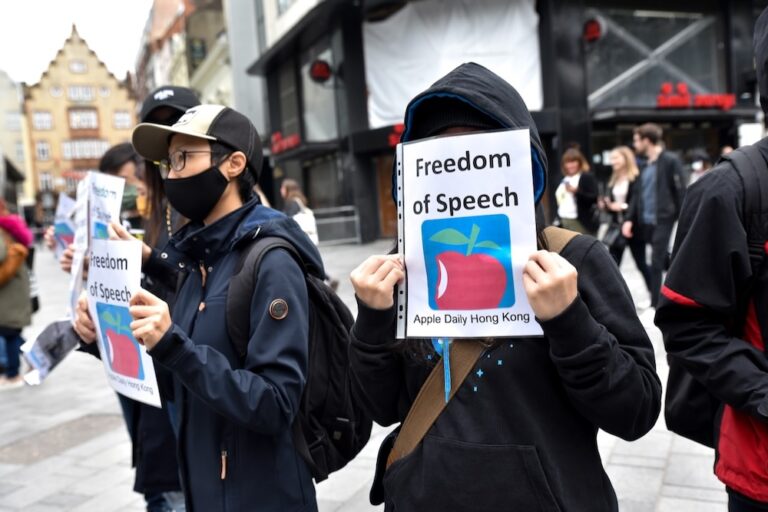In many countries, a misguided equation of democracy with the presumed desires of a majority prompted rulers to suppress minority views in 2013, says HRW in its World Report. And while Edward Snowden's disclosures pointed to the US government's mass surveillance, global outrage at the assault on the right to privacy offers some promise of change.
The Syrian government’s policy of waging war by killing civilians, and increasing abuses by rebel groups, elicited horror in 2013 but not enough pressure from world leaders to end atrocities and hold perpetrators to account, Human Rights Watch said on January 21, 2014 in releasing its World Report 2014.The initial international response was more effective when several African countries faced mass atrocities.
In the 667-page world report, its 24th annual review of human rights practices around the world, Human Rights Watch summarizes major issues in more than 90 countries. In many countries, a misguided equation of democracy with the presumed desires of a majority prompted rulers to suppress minority views and groups, most notably in Egypt, Human Rights Watch said. It also led some governments to enforce a narrow vision of cultural propriety, targeting in particular women, gays, and lesbians. The disclosures of the whistleblower Edward Snowden showed that the US government’s mass surveillance has eradicated much of our privacy in a world that virtually requires electronic communication. But global outrage at this assault on the right to privacy offers some promise of change.
“Despite a swiftly rising death toll and horrific abuses, Russia and China neutered the UN Security Council and enabled the killing of Syrian civilians by both sides,” said Kenneth Roth, executive director of Human Rights Watch. “As the Geneva II peace talks begin, with uncertain prospects of success, they shouldn’t become the latest excuse to avoid action to protect Syrian civilians. This requires real pressure to stop the killing and allow the delivery of the humanitarian aid they need to survive.”
Russia, backed by China, has consistently protected the Syrian government from international action at the United Nations, whether explicit condemnation, an arms embargo, or referral to the International Criminal Court (ICC), Human Rights Watch said. But for its own reasons, the United States has also been reluctant to push for justice via the ICC. According to media reports, Gulf countries and individuals are arming and funding extremist opposition groups responsible for atrocities, while Iran and Hezbollah back the abusive government of Bashar al-Assad.
Despite this failure in Syria, the doctrine of a global “responsibility to protect” vulnerable people from mass atrocities, endorsed by the world’s governments in 2005, was strengthened by the reaction to the prospect of mass atrocities in several African countries, though much more needs to be done to avoid large-scale killing there, Human Rights Watch said. In the Central African Republic and South Sudan, the African Union, France, the US, and the UN reinforced international missions in an effort to prevent the slaughter of civilians. Pressure from allies and an increased UN peacekeeping presence convinced Rwanda to stop its military support for the latest in a succession of rebel groups committing atrocities in the eastern Democratic Republic of Congo.
In another major trend, a notable number of governments paid lip service to democracy while mocking the rights central to democratic rule. New governments, including in Egypt and Burma, purported to enact the majority’s will without regard to the limits on majorities that are critical to any real democracy with respect to the rights of dissenters and minorities. But people did not take such assaults on democracy sitting down, with widespread protest in many countries, including Turkey, Thailand, and Ukraine. In Egypt, both the Muslim Brotherhood government and the military-dominated government ignored the proper limits on governmental power, but the military’s overthrow of its predecessor led to intensified oppression and the worst mass killing in the country’s recent history.
“Authoritarian governments adopted the form but not the substance of democracy, as if all that matters is a vote on election day, not public debate for the rest of the year,” Roth said. “This feigned democracy rejects basic principles: that laws apply to those in power, and that governments should respect free speech and uphold the rights of unpopular minorities.”
Snowden’s revelations and reporting on the impact of targeted killings in Yemen and Pakistan have undermined US efforts to hide human rights abuses spawned in the struggle against terrorism. That has led to intense public scrutiny of global mass electronic surveillance and of targeted killings by aerial drones. While the exposure of abusive US counterterrorism practices has not stopped them, there is new international pressure for change, Human Rights Watch said.
President Barack Obama halted some Bush-era programs such as its forcible disappearance of suspects to torture them in secret CIA detention centers, but he has stymied efforts to prosecute the people who ordered the torture or even to investigate their crimes. In May, Obama suggested that the time was coming when drone attacks should not be treated as an element of a global war on al-Qaeda and its affiliates, and he outlined stringent policies to avoid civilian casualties. But it is not clear whether these policies are being followed.
Global outrage following Snowden’s disclosures sparked a UN General Assembly resolution stigmatizing indiscriminate global surveillance as deeply harmful to human rights. A US presidential reform panel called for an end to the bulk collection of metadata, more effective judicial review, greater privacy protection for non-Americans, and increased transparency. Some governments with poor records of protecting free speech may respond by insisting that user data stay within their borders, raising the possibility of increased Internet censorship.
In 2013 there were important advances in the international machinery that helps to defend human rights, Human Rights Watch said. The UN Human Rights Council has become increasingly effective in putting significant pressure on serious rights abusers, as illustrated by new resolutions on North Korea and Sri Lanka. Two new treaties give hope for some of the world’s most marginalized people: domestic workers, whose labor many governments traditionally exempted from legislation on labor rights, and artisanal miners poisoned by the unregulated use of mercury.
“The past year has seen numerous atrocities in Syria and beyond, and deepening repression in several countries,” Roth said. “But we’ve also seen people around the world stand up to abusive regimes, giving us hope that efforts to suppress rights will backfire.”
For additional information, consult HRW’s 2013 publications on free speech.



